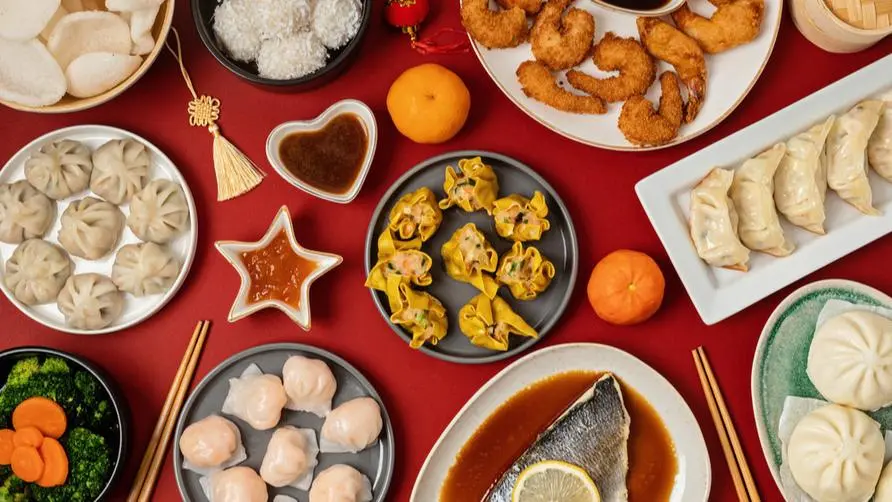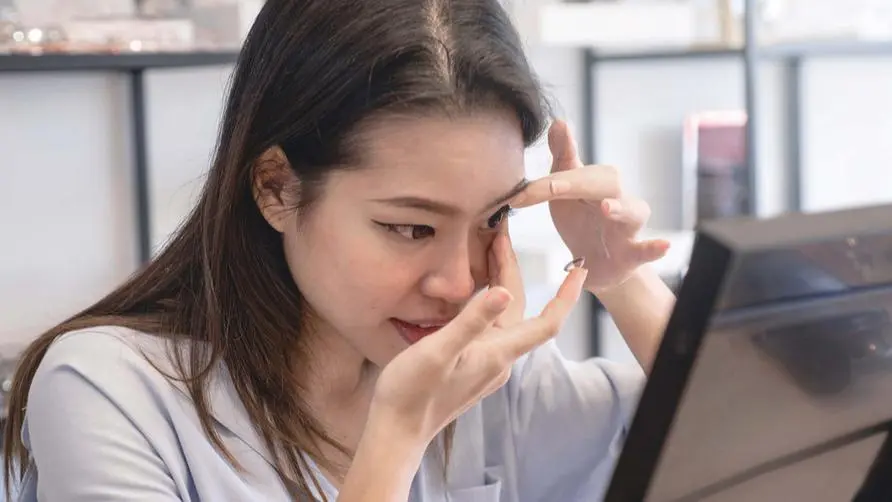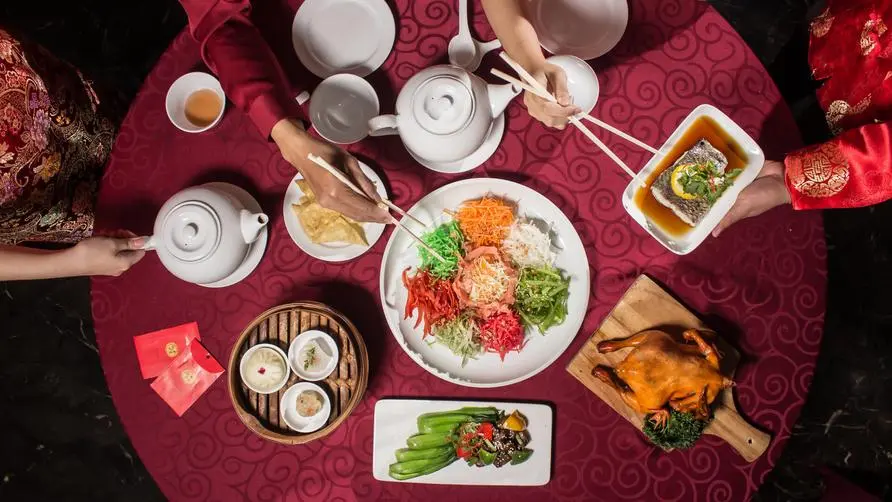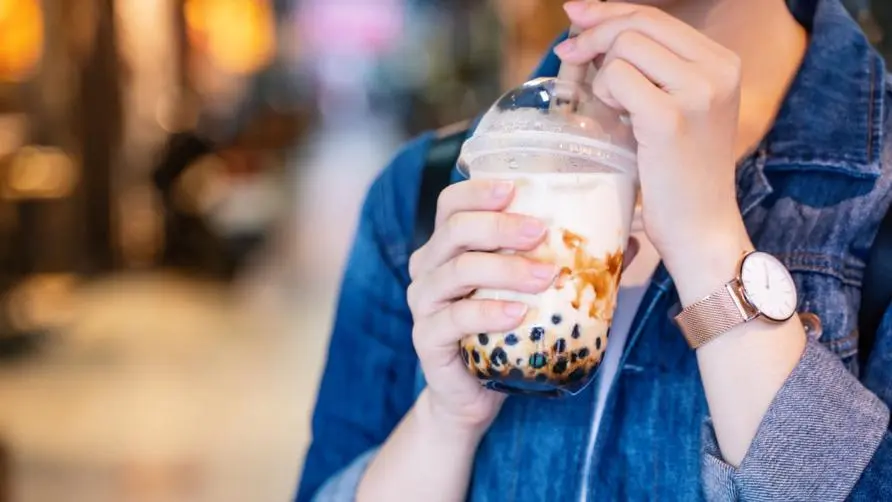Don't dare to look at the scale after Chinese New Year! Nutritionists urge you to avoid "Top 10 high-calorie foods": New Year dishes, snacks, and drinks all win the bid

It’s hard to control your diet during the holidays! Is all the New Year’s dishes that are super fat a “weight loss dieter’s nightmare”?
The Chinese New Year is supposed to be a happy time to relax and reunite with others, but for those who are trying to lose weight or manage their weight, seeing their weight soar from New Year’s Eve gatherings to New Year’s Eve dinner can be described as a “big nightmare.” . Nutritionist Zhang Yuxi said that whether it is New Year’s Eve dishes, reunion dinners, or snacks commonly eaten by people during the Chinese New Year, they all contain extremely high calories. Excessive intake is indeed very detrimental to weight loss.
Nutritionist Zhang Yuxi pointed out that during the Chinese New Year, there are common foods that are prone to “burning calories”, such as seafood, mullet roe, hot pot, and even snacks such as peanut candy, jerky, shredded squid and pastries that are commonly found on the New Year’s table. Doubts about exceeding the daily caloric intake; if combined with alcohol or sugary drinks, the excess calories are more likely to form fat and cause obesity.
New Year dishes, snacks, and drinks all won the bid! Nutritionists name the “Top 10 Fatty Foods” to eat less
Therefore, nutritionist Zhang Yuxi emphasizes that during the Chinese New Year, you should avoid eating and drinking all at once, and you should be more conscious about your dietary intake. In particular, the following 10 foods are relatively high in calories. Eat them in moderate amounts and in small amounts, and pay attention to the principle of substitution:
Nuts and seeds: melon seeds (105 calories), pistachios (120 calories), peanuts (112 calories), each with one tablespoon (15-20 grams) of calories.
Nutritionists recommend: Nuts and seeds are fats and oils, which are rich in good oils “Omega-3 fatty acids”. Taking one tablespoon in moderation is really good for cardiovascular health. However, during the Chinese New Year, when you eat smoothly while watching TV, it is easy to ignore the portion size and calories and eat without realizing it. Therefore, avoid eating a large handful directly, but place it on a small plate before eating.
Mullet roe: about 3 slices (20 grams), 50 calories.
Nutritionists recommend: Mullet roe is high in calories. It is recommended that it be paired with radish and green onions to increase dietary fiber intake. In addition, mullet roe has high cholesterol, so it is recommended that people with high cholesterol or obesity should consume it in moderation.
Seafood: It is recommended to consume low-fat seafood such as pomfret, white shrimp, and clams, and avoid deep-sea fish and large fish, such as tuna and swordfish. The fat in the body can easily accumulate heavy metals, so it is better to eat less.
Alcohol: about 360 ml of beer (1 aluminum can), 120 ml of cocktails, and 30 ml of spirits (1 shot).
Nutritionists recommend: that alcohol should be consumed in moderation, and those who tend to blush after drinking should drink as little as possible. Because of their inherent lack of tolerance to alcohol, the toxic substance “acetaldehyde” is easily accumulated in the body, resulting in an increased risk of cancer.
Cakes: carrot cake (100 kcal/piece), fat cake (140 kcal/60g piece), brown sugar cake (140 kcal/60g piece).
Nutritionists recommend: The calories of two pieces of cake are equivalent to a bowl of rice. It is recommended that if you eat them during meals, you need to reduce the consumption of staple foods such as rice noodles and rice.
Rice cake: sweet rice cake (70 calories/piece), fried rice cake (about 120 calories/piece)
Nutritionists recommend: It is recommended to eat 2 pieces per meal, and steam instead of frying. In addition, it is not recommended to eat it with other cakes such as carrot cake, steamed cake or brown sugar cake, otherwise it will easily lead to excess calories.
Traditional snacks: Peanut Candy (80 calories/piece), Mao (50 calories/piece), Cunzao (14 calories/piece)
Nutritionists recommend: The above snacks are high in calories. It is recommended that you choose low-calorie scallops and konjac when you are craving for food, or you can supplement your fiber intake with dried or fresh fruits.
Hot pot ingredients: fried bean curd (95 calories/piece), hundred-page tofu (91 calories/piece), rice blood cake (66 calories/piece).
Nutritionists recommend: that many people have the custom of eating hot pot during the Chinese New Year. High-calorie hot pot ingredients should be eaten less or completely avoided. The soup base should be avoided from spicy pot or milk pot with higher calories. It should be made with kelp or kombu. Natural ingredients such as tomato pot are used as the base, and prototype foods such as vegetables and seafood are used as the main hot pot ingredients.
Jerky: Beef jerky (about 112 calories/piece), pork jerky (about 110 calories/piece).
Nutritionists recommend: Because it has high calories, added preservatives, and high sodium, you should mainly take 4 tablets at a time, and be careful whether the sodium content exceeds the standard.
Shredded squid: Shredded squid (100 calories/box), shredded cod (70 calories/box).
Nutritionists recommend: Limit the amount of food consumed at one time to half a bowl, and try to choose food with less salt and chewy texture.
Finally, nutritionist Zhang Yuxi reminds that if you are currently on a weight loss plan, or have a chronic history of diabetes, cardiovascular disease, etc., you should discuss your diet plan with your attending physician or nutritionist to avoid worsening symptoms due to wrong eating habits. Ordinary people should also be aware of the calories in the food on the table to prevent their bodies from getting out of shape or their calories exploding.
Further reading:





